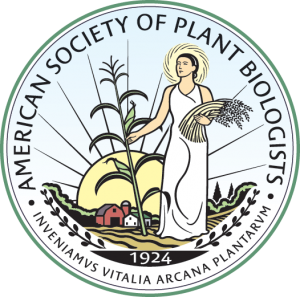Pioneer Member
DONORS
Ing-Feng Chang
Yee-yung Charng
Long-Fang Chen
Tzyy-Jen Chiou
Chi-Chou Chiu
Jiahn-Chou Guan
Tuan-hua David Ho
Ming-Hsiun Hsieh
Shih-Tong Jeng
Tsung-Luo Jinn
Teh-hui Kao
Allan Yueh-Luen Lee
Hsou-min Li
Yuki Nakamura
Jen Sheen
Ming-Che Shih
Zinmay Sung
Heven Sze
Yi-Fang Tsay
Tong-Seung Tseng
Elizabeth Vierling
Shu-Hsing Wu
Ning-Sun Yang
Kuo-Chen Yeh
Ching-Hui Yeh
Hungchen Yen
Anonymous Donor
TESTIMONIALS
Teh-hui Kao – My professional interactions with Professor Chu-Yung Lin were mainly through our serving together on the scientific advisory board (SAB) of the Institute of Plant & Microbial Biology (IPMB) and the SAB of the Agricultural Biotechnology Research Center (ABRC), Academia Sinica, Taiwan. I first met Professor Lin during the very first SAB meeting I attended in the late 1990’s. However, I came to know his name long before that time, as I had gotten to know a number of prominent Taiwanese plant biologists working in the States or in Taiwan, and almost all of them either received their research training in his lab, or took courses with him, while attending National Taiwan University. They all had fond memories of their association with Professor Lin, and they were very proud of belonging to this “elite club.” With an image of a “Big-Shot Professor” in mind, I couldn’t believe what a humble and down-to-earth person he was when I first met him. He took a special interest in me, because both he and I were trained as chemists, in fact both having graduated from the Chemistry Department of National Taiwan University, but later saw the “green light” and got into plant biology research. In the ensuing years, he would ask me to visit him every time I returned to Taiwan for meetings. I took up his kind invitation several times, and I was always warmly welcomed to his office in the Life Science Building of National Taiwan University. We chatted about many different things, including his long research journey, over the special coffee he brewed right in his office. Sometimes, he would drive me to dinner at one of his favorite restaurants. I had plenty of experiences of his “fearless” driving through the heavy traffic in Taipei! One time, when he learned that my father happened to be visiting friends in Taiwan at the same time when I was visiting, he invited both of us to his office and then to a private eating club he belonged to. He and my father were students at National Taiwan University at about the same time (my father majoring in Chemical Engineering), so they had many common friends, but somehow they didn’t know each other then. My father really appreciated the opportunity to reminisce about their student days. Professor Lin was not only a great educator and scientist, but also a very kind and generous human being.
Professor Lin and I must have attended more than 10 SAB meetings at IPMB, or ABRC, together. For the last four SAB meetings at IPMB, I was in charge of writing the SAB Report after gathering comments from other members of the advisory board, so I worked even more closely with Professor Lin. He preferred to communicate with me by phone rather than by e-mail, and he would call my office in the US from Taiwan to share his comments, often late at night in Taiwan because of the 12- or 13-hour time difference between Taiwan time and East Coast time. I last interacted with Professor Lin in early March 2015 at the SAB meeting of ABRC, about seven months before his passing. I attended as an ad hoc member, as ABRC was concerned that Professor Lin might not be able to attend due to health issues. It was really a very pleasant surprise for everyone that Professor Lin showed up the first morning of the meeting! He sat next to me and stayed engaged throughout the entire two-and-a-half-day meeting. His dedication and strong sense of responsibility was simply amazing. At the end of the meeting, he left the room, but quickly returned to retrieve an item he had forgotten. That was the last time I saw him.
Professor Lin was a remarkable educator and scientist in plant biology and a humble human being. It was truly a great honor to have gotten to know him. His impact on many generations of young scientists will be long-lasting and his legacy will live on for many more generations.

